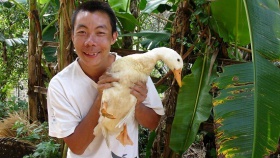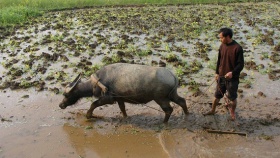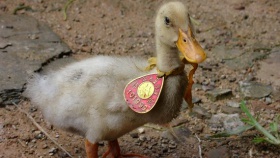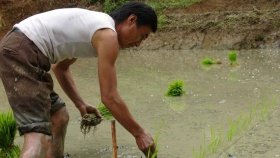Ancient Species
- Urban
- Rural
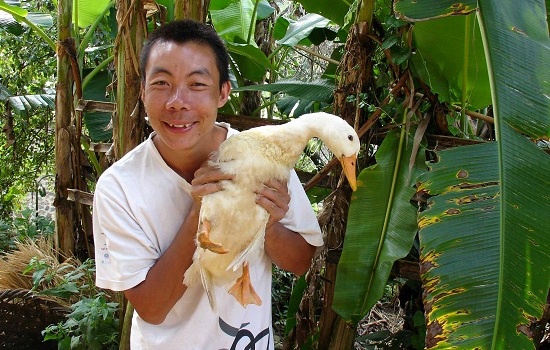

Synopsis
DONG, Chao-qing, a Baomo (flamen), found the red grains of an ancient species in Pingzhai Village and under his proposal, three farmers started to plant the red grains in the traditional way.
From the last century, Chinese government has been waving high the banner of scientific farming, and promoting that “modern farmers should know about scientific farming.” Although the farmers were not willing to, they still started to use fertilizers and pesticides, which severely damaged soils. Not to say that the new breeding technologies also rendered the traditional grain species near extinction.
As the three agricultural problems came up on stage of politics, everyone wants to solve the three problems of agriculture, farming villages, and farmers. But nobody in town really knows what the problem is in those agricultural villages. Many university students support to bring sanitation, science and culture to the countryside. But without a clue of what agricultural life is, their enthusiasm just goes down to drain. Without truly understanding the problems, simply idealistic actions will change nothing but leave the problems there while the urban-rural gap expands and the society is still not in harmony.
Organic farming actually originates from China and is based on the farming skills passed down from one generation to another, which consequently forms the strong historical and emotional bonding between farmers and their land. Ironically, the parents who work in the fields would rather “exodus” their children from agriculture through education. The economic growth in China has increased people’s income, but not their confidence. The urban people, who despise their rural countrymen, are in fact looking down on themselves with the poisonous thinking of “whatever exotic represents good, whereas home-made stuff is worthless.” When people try to help farmlands and farmers to regain their land and agricultural confidence, is that not also a process for Chinese people to find their own confidence?
Director Statement
In a seminar held after the release of a documentary about the migrant workers in the villages located inside the cities, someone said that he couldn’t imagine that with the current living standards, some people still lived in such poor conditions. That’s right. Most people can hardly see how people live under different living conditions, but there are even fewer people would have come to realize that the reason we have a better life is strongly related to “their“ living standards. As some people are getting richer, how do they consider those who help them becoming rich? Exactly why do the migrant workers still flock into the cities every year at all costs? Maybe we can find some clues by looking at the status quo in the rural areas these days.
Some people asked me whether there were some differences between this documentary and the very popular film Let It Be in Taiwan. Of course, the point of view and shooting methods would be different. However, while shooting the film, I had a profound feeling that Let It Be marks an ending speechless for the farmers, whereas I was recording the foreword and the prologue.
Festivals & Awards
2009 Taipei Film Festival
Team
- Director
- Executive Production
- Distribution

